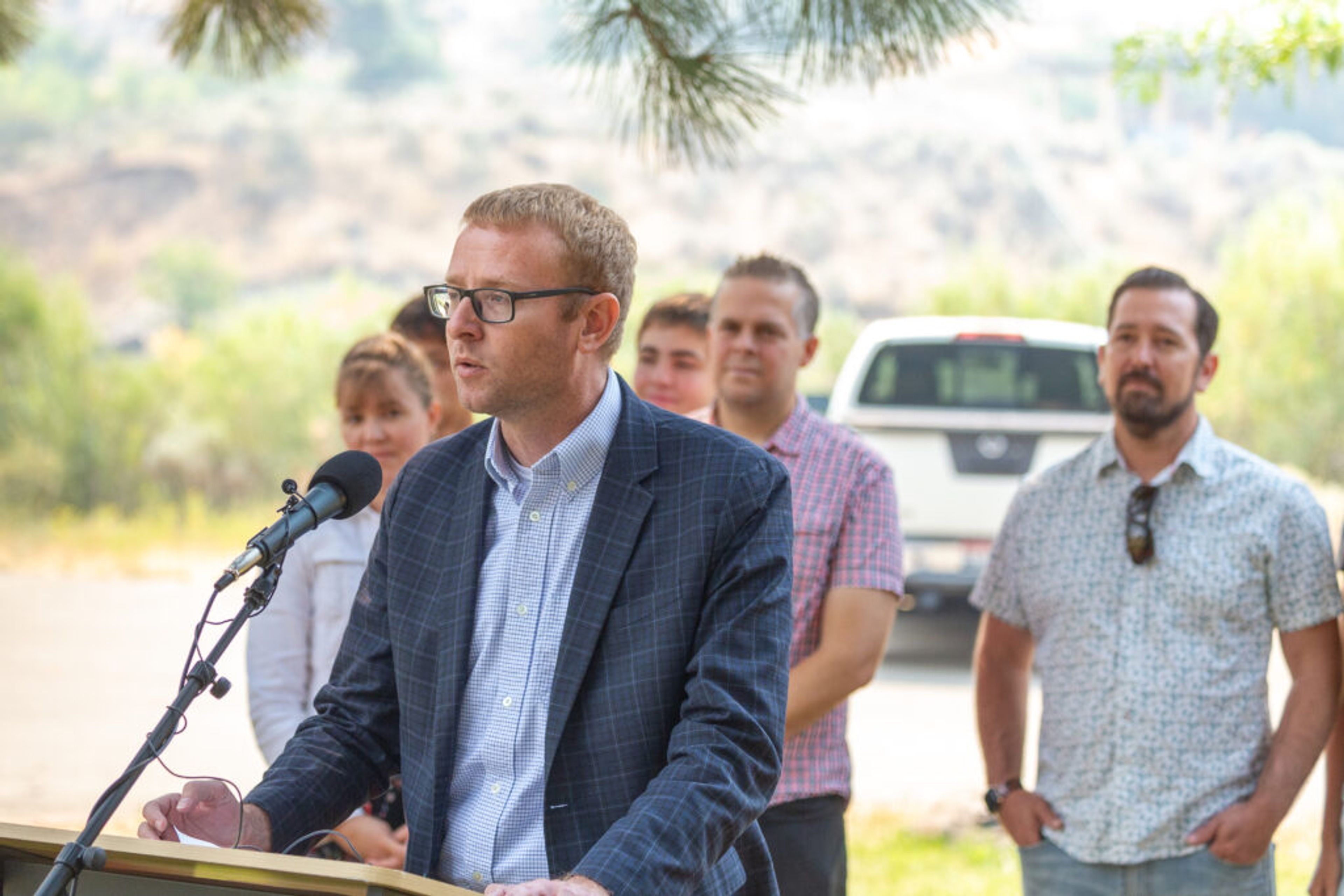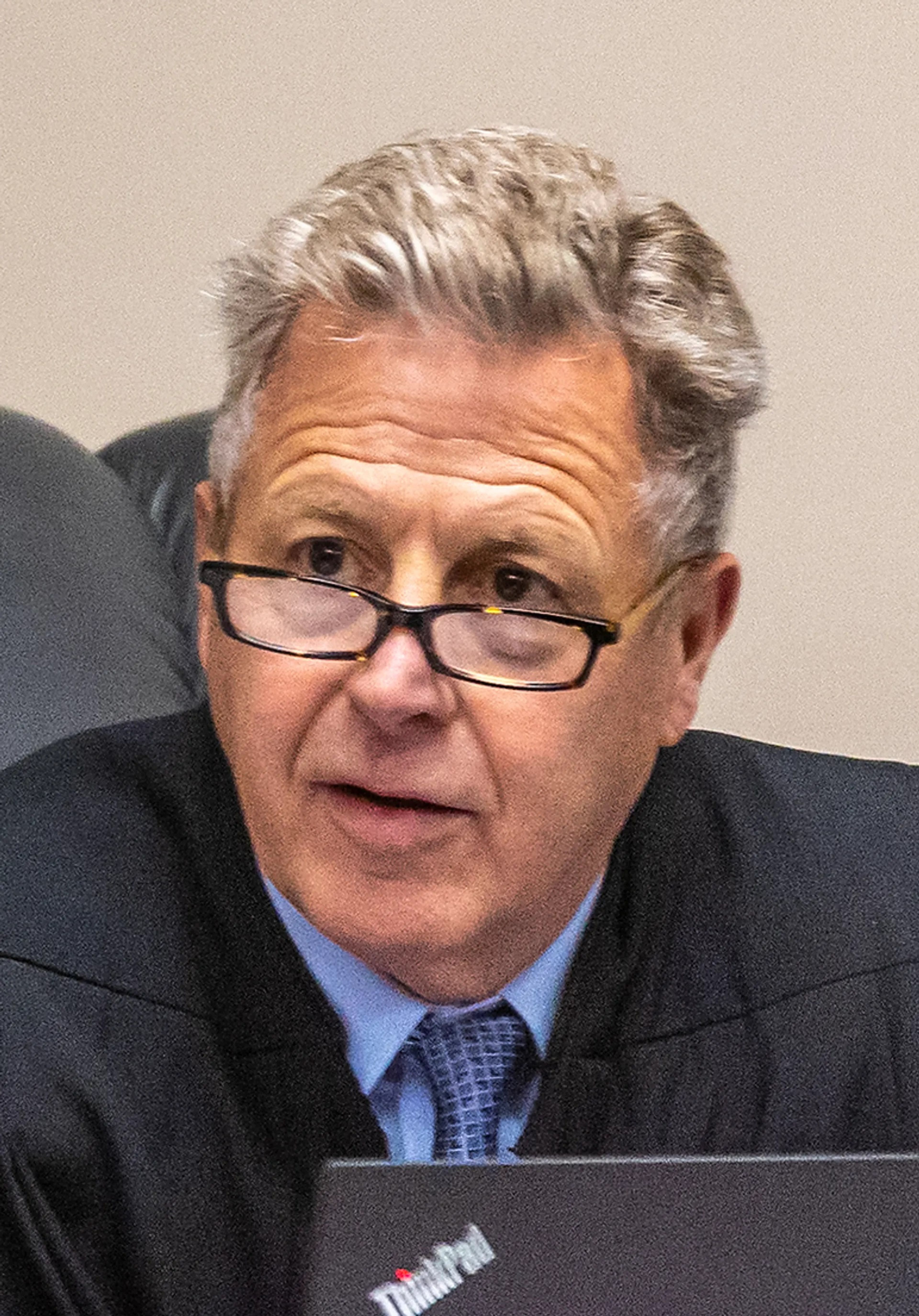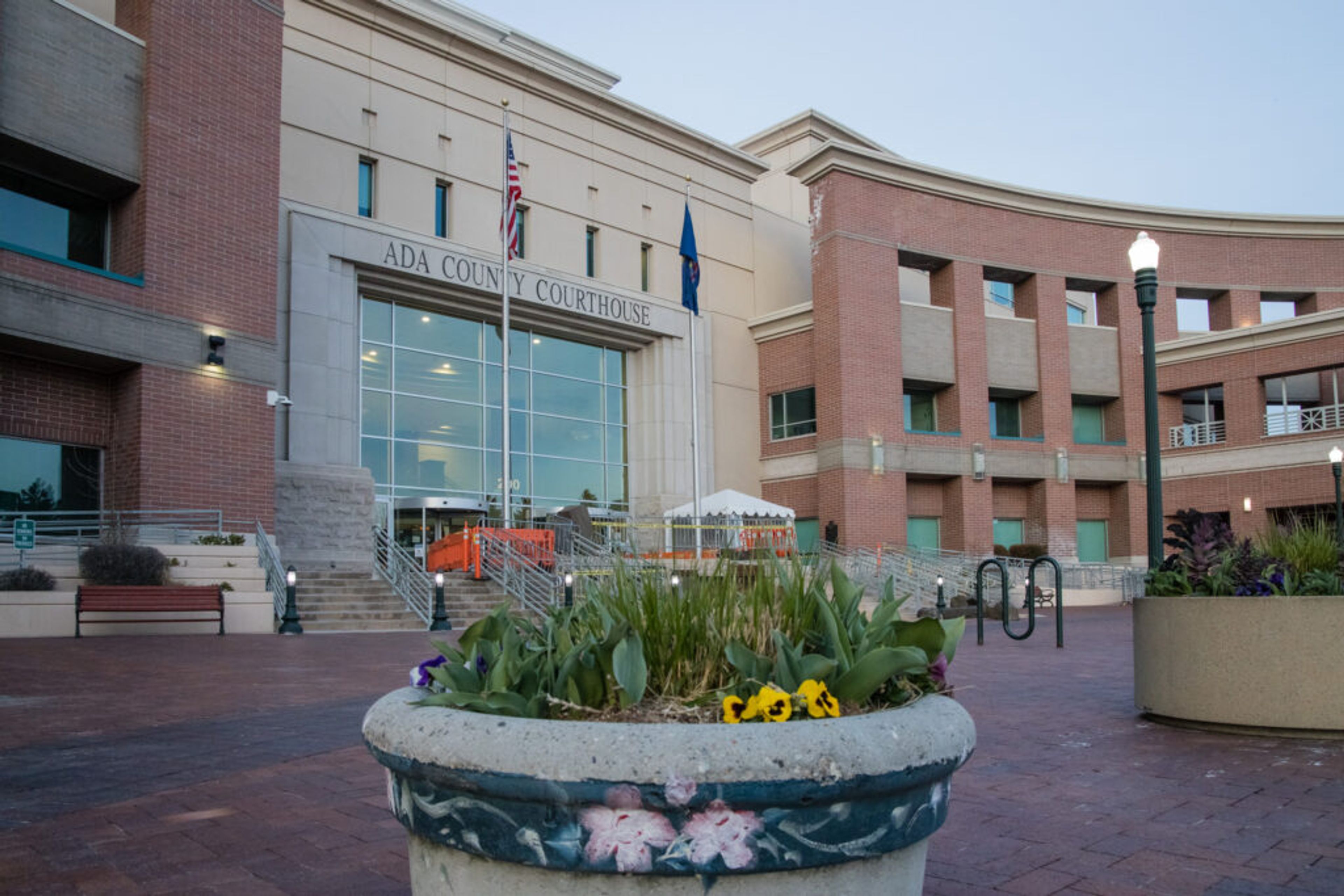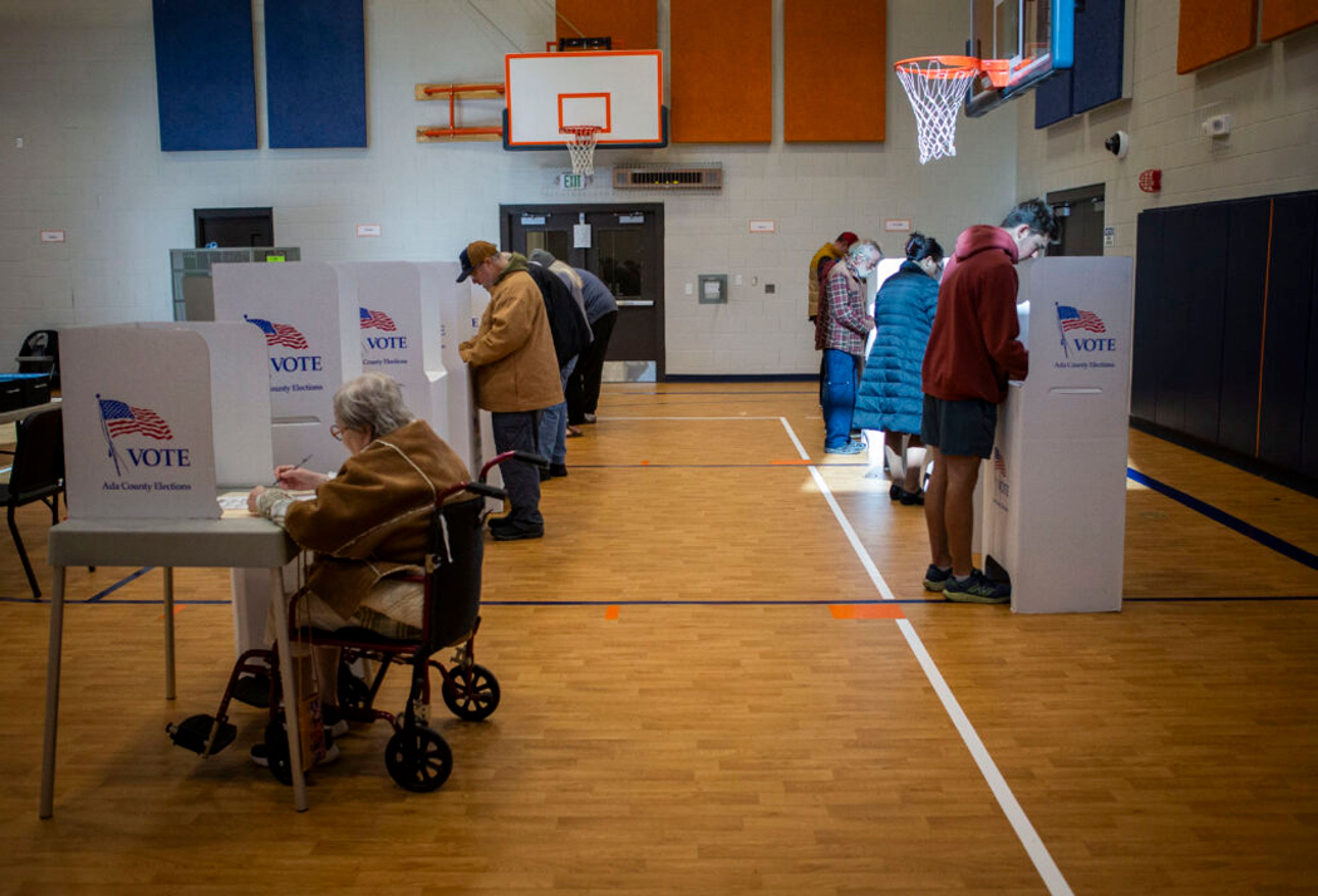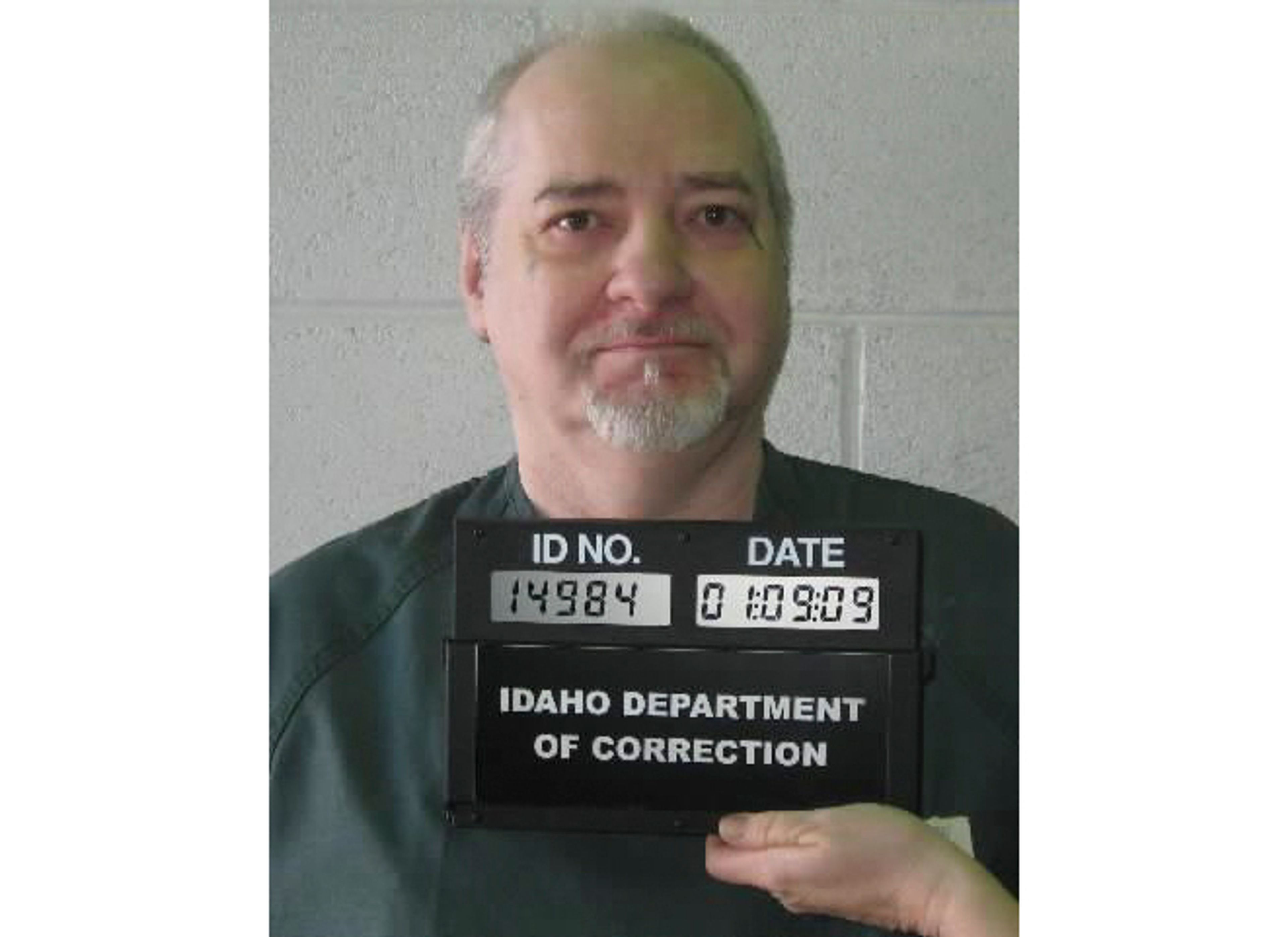Education in uproar
Changes in state funding fueled by charter school surge inspire wave of activism by union teachers on behalf of traditional public school districts
On a cold March afternoon in Lewiston two years ago, Rhonda Norland joined the largest, most political rally of public school teachers in at least 15 years.
The Orofino elementary school teacher gathered with 300 others in Locomotive Park to protest the first permanent cut to Idaho's school budget in state history.
At the same time, more than 4,000 teachers, students and supporters were rallying 115 miles to the north in Coeur d'Alene and 275 miles to the south on the Capitol steps in Boise.
They made speeches. They waved signs at passing cars. They were serious. They didn't want to see their schools' budgets set any lower.
"I thought it was a positive move on the teachers' part," Norland says.
She would have gone even now, she says, knowing the consequences of their actions.
Norland's school was among those most affected by the budget cuts that came despite the protests. It is one of two that dropped Friday classes to save cash.
"We just keep cutting," Norland says. "We're down to four days, and they cut seven people this year."
The politics of education shifted after the teachers' ill-fated rallies in 2002.
Cuts to public schools by the Idaho Legislature went deeper, Republican state lawmakers punished unionized teachers, and schools found themselves out in the cold as party leaders embraced a new group that gathered on the Capitol steps this year -- charter school supporters.
l
Norland and the other 12,000 members of the Idaho Education Association had been relatively quiet for years when the teachers union, long affiliated with Democrats, organized the simultaneous statewide rallies.
Seventeen days after the protests, Republican Gov. Dirk Kempthorne approved an education budget $23 million less than schools expected.
The IEA fought back at the ballot box, donating tens of thousands of dollars to school-friendly candidates in the 2002 elections.
That November, every one of the 11 new Democratic freshmen had help from the teachers union. The IEA also supported five new Republican legislators, all moderates.
The conservatives' response came in the next legislative session.
The most blatant slap at the IEA made it a crime, punishable with jail time, for teachers to contribute to their union's political action committee through paycheck deduction. The bill was sponsored by the Republican leadership of both the House and Senate.
Senate Majority Leader Bart Davis of Idaho Falls says the bill was intended to protect the freedom of union members who may disagree with the political action committee.
"As far as effectiveness in being able to advance legislation," he says of rallies, "it neither helps to define the problem or in identifying solutions."
But few observers believe the bill was nonpartisan.
"That was their response," says IEA President Kathy Phelan of Boise. "They could see that the support for education around the state was strong and there were political consequences for them. They wanted us to know there would be political consequences."
Some lawmakers were clearly influenced by the protests.
"Those things were decided weeks ago, and here they come to town just as we're finishing up the budgeting process -- coming in with the tactics of the labor union," Rep. Ken Roberts, a Republican from Donnelly, said at the time.
Phelan says Idaho teachers had futilely tried calling and sending messages to their elected representatives.
"They gained a moral boost from the rally, because they realized that they weren't alone. That rally proved that people in the state value education and did not want to see it cut."
Roberts introduced a bill the following year to cap the teacher salary experience index and voted to remove a $250 tax deduction for teachers who spend their own money on school supplies.
Both proposals became law in 2003.
The same year, Republicans backed several other changes to school funding that are becoming more expensive over time for school districts. The caps were projected to reduce state education funding by $7 million in 2004, and $116 million by 2008.
But since 2002, GOP leadership has been paying more attention, and funneling more money, to charter schools, especially the Idaho Virtual Academy.
That relationship culminated this year in a Statehouse rally by charter school supporters and a sweeping, conservative-backed new charter school law.
"Of course the charter school supporters didn't have a track record of supporting some of the opponents to members of the Legislature," says Jim Weatherby, a political scientist at Boise State University. "That certainly had an effect.
"Their message, I think, was more effective because they had more receptive people there, although the thrust of the charter school legislation was rather anti-local control."
l
Weatherby and others say the most important of the IEA victories in 2002 was probably the election of Ron McWilliams, an attorney from Caldwell who defeated incumbent Sen. Darrell Deide in the Republican primary.
Deide, a former school superintendent, had scuffled with both the teachers union and the chairman of the Senate Education Committee, Sen. Gary Schroeder, R-Moscow.
Kempthorne, who prides himself on his support for education, also failed to win the IEA's endorsement in the election.
After winning a second term, Kempthorne appointed the now-available Deide as his education adviser and legislative liaison.
The 2003 Legislature had the largest freshman class in decades, and the session was the longest in Idaho history: The state was facing a $160 million budget deficit.
Kempthorne asked for a one-cent increase in the sales tax to avoid further cuts. The House Education Committee instead proposed a number of ways to reduce school funding.
The bills included increasing class sizes, consolidating small districts and allowing districts to side-step collective bargaining with unions.
Some of the bills never made it out of the House committee, and several more were killed when they reached Schroeder's Senate committee, where McWilliams replaced Deide and a Democrat was added.
The Senate pro tem, Republican Bob Geddes of Soda Springs, introduced a successful bill to end control of federal education programs by the Department of Education -- run by Democrat Marilyn Howard -- and handed the programs to the State Board of Education -- run by former state GOP President Blake Hall.
House Republican Leader Lawerence Denney of Midvale sponsored a successful bill making a group of schools suing the state for more building money defendants in their own case, allowing a judge to order the districts to raise their property taxes.
Rep. Mike Naccarato of Lewiston, a firefighter and one of the IEA-backed Democratic freshmen, took a lead role in opposing the bill making payroll deduction for the union's political committee a crime.
"I want you to remember who votes against us. I also want you to remember those who stand with us," he told a group of protesters on the Capitol steps.
Kempthorne's sales tax increase eventually passed, but so did many of the education funding changes Schroeder's committee killed.
The changes, inserted into the budget bills by GOP legislators, eliminated increased salaries for experienced teachers, limited bus funding, ended early retirement for administrators, and eliminated funding for a mentor program for new teachers.
The budgets also reneged on a 1995 law requiring the state to replace 25 percent of local school districts' property tax levies, capping it at the 2004 level.
Meanwhile, the five-year review of the state's charter school law was coming due.
l
Schroeder went on a statewide tour last fall, talking about education issues. The trip raised what he said were unsettling accusations about the state's small constellation of charter schools.
There were 16 such schools statewide, and Schroeder suspected a handful of those were abusing the holes in the charter school law, essentially operating as publicly financed private schools.
His committee began passing legislation proposed by the Department of Education to address the issues, including ensuring all charter school financing records were open to the public and that board members of charter schools could not enrich themselves with school contracts.
The growing charter school community had different issues, however, such as guaranteeing space for the children of school founders and gaining more funding for the Idaho Virtual Academy.
The academy was founded after the 2002 session as an online elementary charter school, open to students statewide.
By this year, the academy reported it had 1,200 students and was $1.8 million in debt to K12 Inc., a Virginia-based company that provides its curriculum and pays its administrators.
K12 joined the Idaho Association of Commerce and Industry, the state's largest business lobby, and hired a professional lobbyist, Suzanne Schaefer, to push for more virtual academy funding from the state.
Schaefer, along with the business group's lobbyist, Neil Colwell, and Schroeder's old nemesis, Deide, worked with Republican lawmakers, staff from the State Board of Education and Paul Powell, a charter school board president from Boise.
Kempthorne backed the group's proposal, and the first news of the bill came at the charter school rally on the Capitol steps.
In that crowd Feb. 24 was Mindy Vance, a rural Potlatch resident who boarded a bus to ride all night to Boise.
Vance has three kids in the Idaho Virtual Academy. They take their classes at home under her watch, making Vance, like many parents of charter school students, intensely involved in her children's schooling.
"I don't know how else to say it except it's when parents are more involved in the child's education, they tend to be more active," Vance says. "They're going to be politically active."
And they were welcomed by legislators.
Rep. Jack Barraclough, the Idaho Falls Republican who heads the House Education Committee, joined the group on the Capitol steps to tout the superiority of charter schools to traditional schools.
"The criticism of charter schools is to me like comparing a Super Bowl champion to a team that didn't even make the playoffs," he said.
The coalition president is Bridget Barrus of Boise, who, like Vance, has children in the Idaho Virtual Academy.
She says her group is not partisan, but the Statehouse is.
"I think we knew going in it was going to be political; it's education," she says. "Education is the biggest industry in Idaho."
Barrus says charter schools' acceptance by the Republican majority is the result of hard work and perseverance.
"The rally wasn't the end, it was the beginning," she says.
Pat Reilly of Boise, a political operative hired by the charter school coalition to handle public relations, attended both the IEA and the charter school rallies and says the union focused on the negative.
"Maybe we are going to change things," Reilly says. "Stay positive when you go down to Boise. Don't corner people and beat them up."
Reilly's press releases on the charter school rally were posted as news on the Idaho GOP Web site.
"We are raising education to a new level in Idaho," Kempthorne said when he signed the charter school bill he had pushed.
l
"Clearly the charter school advocates were effective in passing legislation that might not have passed otherwise," Weatherby, the political scientist, says.
"I think they took a page from our book," says IEA President Phelan.
Regardless of the political techniques used, the charter school supporters showed decisive strength, despite the fact their 3,500 students are only 1.4 percent of Idaho's 248,000 public school students.
"The intensity seems to be favoring the charter school proponents, even though they are a distinct minority," Weatherby says.
"I hate to make the comparison, but it's the clout of the (National Rifle Association) to kill gun control legislation, even though polls have shown the national population supports those kinds of measures."
The political clout of charter schools was put to something of a test in May, when Mindy Vance's husband, Gregg, challenged Schroeder for his Senate seat in the Republican primary.
Gregg Vance, a Potlatch-area farmer, ran to the right of Schroeder, labeling him a liberal and laying claim to the mantel of a true Republican.
"Now is the time for change, time to elect Greg Vance, who in day one in the Legislature will have more 'clout' than the incumbent will ever have," Deide wrote in a letter to local newspapers.
He also solicited donations to his political action committee to help Vance.
Schroeder used Deide's efforts to paint his opponent as a puppet of southern Idaho interests.
"Basically what it represents is a mind-set of people who want to take control of public schools, who go out there and use an argument that blames a particular group for doing something they perceive the public doesn't like, and then they take over themselves," he said.
The efforts and cash spent on Vance's behalf failed to translate into voters in the booth May 25, however. Schroeder, who solicited help from area teachers, trounced Vance 2-1.
But McWilliams, Schroeder's freshman ally who defeated Deide, was ousted by a fellow Republican and former Kempthorne aide.
And Powell, who helped draft the legislation creating the new statewide charter school commission, was appointed to it by Kempthorne.
l l
Norland teaches Orofino kids who need extra help before entering the first grade. She says they have adapted well to the school district's four-day week.
Norland is glad she came to the rally in Lewiston back in 2002 and plans to stay active in the debate over school funding in Idaho.
"I don't know how they think things can improve when the Legislature just keeps cutting our budgets," she says. "I think you'll see a lot more people more active in the upcoming election."
Mindy Vance is recovering from a blistering month on the campaign trail with her husband.
She will return to Boise to lobby for school choice, including virtual charter schools, if the need arises.
"When there's an awareness, there are some options, I don't think it's going to go away," Vance says. "If anyone introduces a bill that threatens that freedom, there's going to be a fight."
Several contentious elections are brewing across the state, notably in Lewiston, where Naccarato, the firefighter, has given up his House seat to challenge Lewiston Sen. Joe Stegner, who supported the anti-union contributions bill as the GOP's assistant majority leader in the Senate.
In June, the Idaho Republican Party added a plank to the education platform during its convention: "We believe in improving the quality of education for every child by maximizing parental choice through expanded support for charter schools, public virtual charter schools, school choice programs and accountable public school systems."
The teachers union intends to push just as hard this year at the polls as it did in 2002, says IEA President Phelan.
"This is the American process; this is how you play in the decision-making process in this country," she says.
"We intend to be there all the time, no matter how people try to shut us down, and we saw that very clearly last year that people thought we had been too effective."
------
Wilson may be contacted at awilson@lmtribune.com


